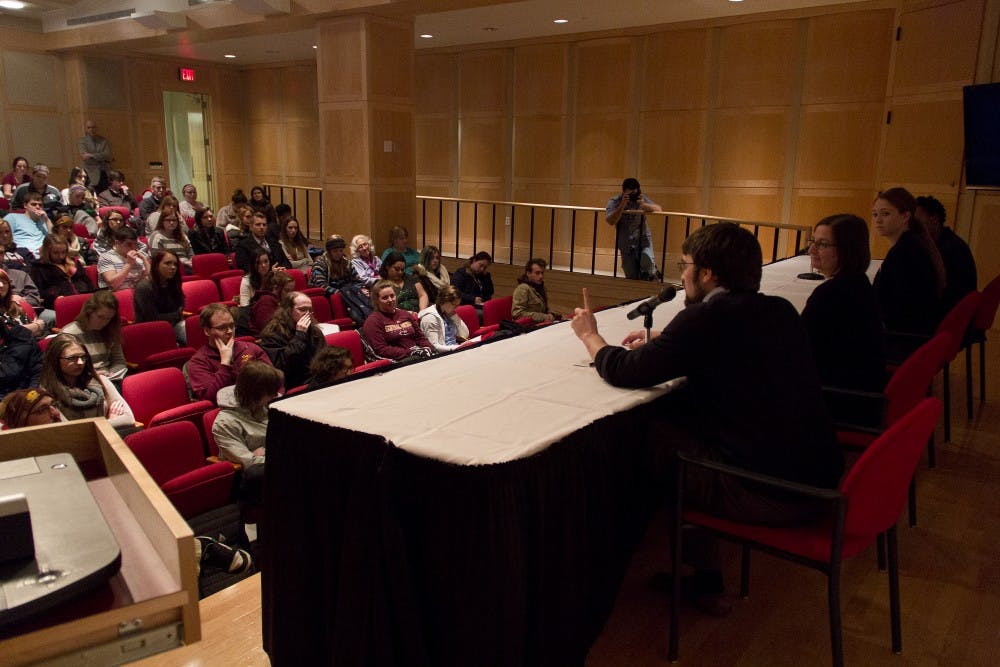"World War D" SUSO panel discusses health concerns

Speak Up Speak Out hosted a panel discussion, “World War D,“ Monday in the Park Library auditorium discussing concerns about the flu virus, vaccinations and other recent health issues including the Ebola scare.
“The most important point that we need to stress is the safety of vaccination, how effective it is, and how affordable it is,” said Michael J. Conway, a panelist and Central Michigan University College of Medicine faculty member. “You don’t want to wait until you get a disease, that’s a long, painful and expensive road.”
The panel consisted of two students and two faculty members, who discussed the importance of receiving vaccinations. The topic was introduced to the audience by a video clip about the recent measles outbreak that spread across four states.
According to the Washington Post, out of the 70 people that contracted the measles the outbreak’s highest concentration is in Orange County, Calif. Orange County also happens to be the center of the anti-vaccination movement nation-wide.
The panel also talked about the merits of getting vaccinated, including small risks like getting a sore arm compared to contracting an illness. Vaccination was considered to be more cost-effective.
Common concerns about vaccination varied from costs, inconvenience, and a disproved study that linked the measles, mumps and rubella (MMR) vaccine to autism.
“An argument (against vaccinations) that held a lot of weight over the years was the autism argument, which has been thoroughly debunked,” Conway said.
The study that linked MMR vaccinations to autism was published by the medical journal The Lancet. It was proven false by other studies and pulled from the journal.
Panelist Andrea Goudie advised combating misinformation about vaccines and diseases by questioning and evaluating a source’s credibility.
“People are generally going to get (misinformation) from friends on Facebook,” said Goudie, Hartland senior. “(Those friends) don’t check their sources or write where it’s from. You don’t know what’s credible and what isn’t.”



